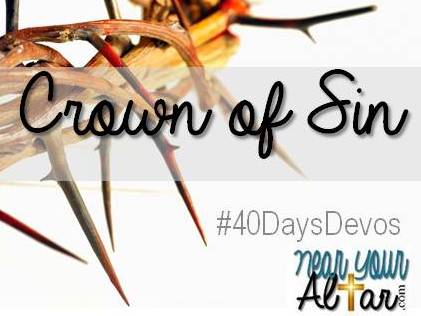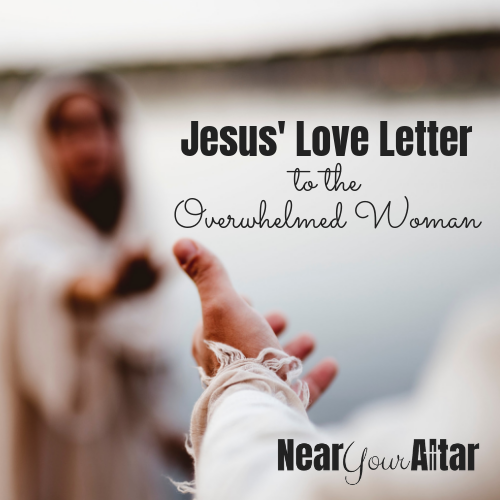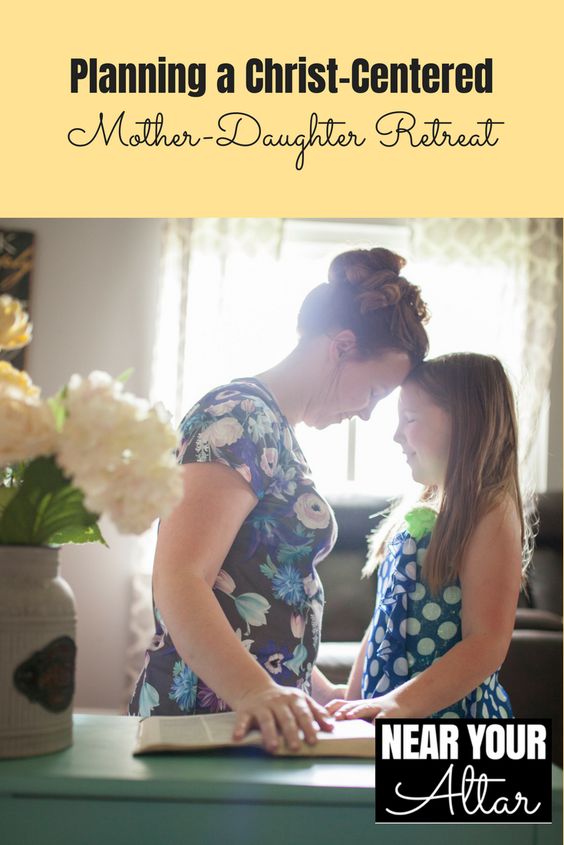 I love to garden. It’s harder now, with the physical issues I have, but I’m looking forward to tending the veggies in the raised garden beds I am planning on making. One advantage of raised beds is that weeds tend to be reduced, most of the time. I hate weeding around plants and being stuck by a thorny plant-pest on the rare occasion I forget my gloves. Sometimes thorns even pierce the skin and draw blood despite gloves or long sleeves. Thorns hurt. The lessons found in Scripture are often in the details: those specific morsels we acknowledge, yet pass over, noting them as adjectives in passages for vivid descriptions. We read that Jesus wore a crown of thorns on His head at the crucifixion but we don’t stop to read that He bore a crown of thorns on His head. Blood-letting thorns piercing Jesus’ brow and deep into His skin, perhaps even touching His skull…it hurts just thinking of it. But why thorns? We read in Matthew 27:29 that the soldiers “twisted together a crown of thorns and set it on his head. They put a staff in his right hand. Then they knelt in front of him and mocked him. “Hail, king of the Jews!” they said. The soldiers put a crown on His head to mock Him and His Kingship; they used thorns because they were painful and the Romans liked to inflict pain, especially during the scourging leading up to an execution. But the thorns have a far larger meaning. Right after Adam and Eve were banished from the Garden of Eden, we read that thorns were part and parcel of the curse that God put on the Earth because of sin. “Cursed is the ground because of you; through painful toil you will eat food from it all the days of your life. It will produce thorns and thistles for you, and you will eat the plants of the field,” Genesis 3:17b-18. Once sin entered the world through Adam and Eve’s disobedience, even the very ground upon which they walked was cursed by God. Whereas before they could walk through the Garden with God and eat of any tree (except the Tree of the Knowledge) at will, once they left Eden Adam was forced to contend with working for his food, fighting briars, brambles and thorns for it. With sin came the painful piercing of thorns. Thorns also make their appearance when Abraham walked up the mountain with his beloved and much-anticipated son Isaac, walking in obedience to God to sacrifice the boy. There are two huge points here that are made by the same passage in Genesis 22:7-8, “Isaac spoke up and said to his father Abraham, “Father?” “Yes, my son?” Abraham replied. “The fire and wood are here,” Isaac said, “but where is the lamb for the burnt offering?” Abraham answered, “God himself will provide the lamb for the burnt offering, my son.” And the two of them went on together.” The angel indicated that Abraham’s trust of God was bigger than his acceptance of the gift of Isaac. Scripture says in Genesis 22:13, “Abraham looked up and there in a thicket he saw a ram caught by its horns. He went over and took the ram and sacrificed it as a burnt offering instead of his son.” The first point made here is this: God Himself provided the sacrifice by a ram that was stuck with thorns around its head. The second point is this: God Himself was the sacrifice with a crown of thorns on His head. God’s sacrificial provision foreshadowed Christ’s sacrifice on the cross, even down to the thorns that would pierce His brow as surely as it pierced the ram’s head. Peter wrote in his first epistle, “He himself bore our sins” in his body on the cross, so that we might die to sins and live for righteousness; “by his wounds you have been healed.” [1 Peter 2:24]. Jesus bore our sins in every aspect of the Cross, especially in the crown the Roman soldiers certainly smashed down in His head. The thorns that Jesus bore represent the sin that came into the world after the Fall. Sin pierces and hurts; no one is removed from it. Romans 3:23 states that “all have sinned and fall short of the glory of God.” It took a perfect Lamb – Jesus – to take upon the sins of the world and die in our place just like the ram that had the thorns wrapped around his horns died in Isaac’s place. In Isaiah 53:4-6 we read, “Surely he took up our pain and bore our suffering, yet we considered him punished by God, stricken by him, and afflicted. But he was pierced for our transgressions, he was crushed for our iniquities; the punishment that brought us peace was on him, and by his wounds we are healed. We all, like sheep, have gone astray, each of us has turned to our own way; and the Lord has laid on him the iniquity of us all,” (emphasis added). He bore our suffering and curse of sin made known to us through the thorns and was pierced for our transgressions. Our punishment for sin (represented by thorns) was on Him, yet we are healed by His wounds that were given to Him through the Roman scourging, the beatings, slapping, spitting, crown of thorns and the nails – and the removal of God’s presence upon Him, for God cannot look upon sin. Yet – and oh how I love that our God is the Lord of Yets – yet, because of Jesus’ sacrificial love for us and bearing that crown of sin, we can be free from sin’s piercing bondage. Jesus took upon Himself what was meant for us, and what we deserved, because of His love for us. Because of His grace. One day, though, one day…for those who accept His gift of salvation, we get to live with Him in a new heaven and a new earth, free of the bondage of sin and shame. Revelation 22:3 states in one simple sentence the ultimate weed-killer: “No longer will there be any curse.” Praise His holy name! Jesus, we are humbled by Your presence in this place. Saying “thank you” seems so trite for what You did for us on the Cross, bearing the sin-thorns for us. Yet, Oh Lord, thank you for Who You are. Thank you for wanting a relationship with us. Thank you for one day ending the curse through the shedding of Your blood and the dawning of Your kingdom. We are filled with gratitude for Your love and grace toward us. In Your Most Holy Name, Amen. In Christ, Terrie © 2016 Terrie McKee
1 Comment
2/11/2016 07:06:57 am
This is a little detail we gloss over. Thank you for the reminder of His suffering for my sin. Praise be to our Savior.
Reply
Leave a Reply. |
Recent PostsAdvertisingThis post may contain affiliate links to products and/or services, including those available on Amazon.com, as Near Your Altar is a participating member in the Amazon Affiliate Program in addition to other retail affiliates. These affiliate links help provide for this website as well as a small income to my family and I. Please consider clicking on the links to purchase or to browse the affiliate's website, which will open in a new window. We thank you for your support. ~ Terrie
Read Disclosure Policy here |





